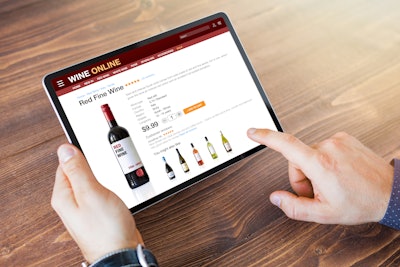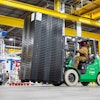
In recent history, delivery apps for necessities, like groceries, have skyrocketed in popularity. Since the pandemic, there’s been an exponential increase in food and drink deliveries, particularly for age-restricted products such as alcohol. In Massachusetts alone, home alcohol deliveries jumped by 300% during the height of the COVID-19 pandemic. As a result of this trend, supermarkets and third-party delivery services are scrambling to comply with stricter processes for ID verification. Only, it isn’t working. At least not as well as it should.
Whereas supermarkets and delivery companies have good control over staff training (and can monitor their processes on-site), remote or third-party couriers often train online or via an app and then work unsupervised. In addition, many drivers are under pressure to deliver rapidly, particularly the ones paid per delivery instead of by the hour. The icing on the cake? In fact, 32% of college students admit to owning a fake ID.
So, how can supermarkets and delivery companies do the right thing by their customers and employees while avoiding the serious penalties that rightly come with being found non-compliant?
A worrying trend
Minors getting their hands on age-restricted goods is nothing new, but the ease with which it is happening is. According to a recent audit published on Grocer.com, around 2,600 young mystery shoppers tested buying alcohol or cigarettes over the last 12 months using online and app-based fast delivery services. Only 45% of them were asked for ID upon delivery.
When the same test was performed in supermarkets, the rate was 72%. It’s still not perfect, but it’s 27% better than during deliveries.
In other words, supermarkets and delivery companies have a serious challenge on their hands. And it’s starting to have legal and financial consequences, too. Businesses risk incurring substantial fines, losing their liquor licenses, and suffering significant damage to their brand’s reputation by delivering alcohol to minors. Recently, four businesses in California were cited in an undercover operation for selling alcohol to minors. All clerks were fined $1,000 and face 32 hours of community service. The businesses can potentially face further fines, citations, and even suspension or permanent revocation of their alcohol license.
Consequences and solutions
Earlier this year, a delivery company experienced this scenario firsthand. The company was investigated and subsequently accused of selling alcohol to minors on a college campus, raising concerns about the industry’s regulations. To make matters worse, one of the app users claimed that couriers were often in such a hurry that they’d drop deliveries off at the doorstep and then leave, making the whole process even easier to abuse.
Thankfully, there are clear steps being taken that signal that supermarkets and delivery companies are serious about rectifying the current situation. As soon as the above-mentioned delivery company’s officials were made aware of these events, they immediately began working to enhance their compliance measures further in close collaboration with the Alcoholic Beverages Control Commission. These measures included enhanced driver education, communication streams, operational compliance procedures, a secret shopper program, and the implementation of enhanced ID scanning technology.
But while better education, communication, and procedures are critical links in the chain, enhanced scanning technology is the all-important padlock that secures it.
Smart new technology
Smart data capture technology, including the ability to detect fake IDs, was made specifically for the modern, digital world. These tools can instantly verify the age of recipients and the authenticity of IDs, even without an internet connection, helping drivers quickly ensure that they are only delivering alcohol into the hands of those legally allowed to possess it.
These tools act as the final step of verification, helping supermarkets and delivery companies remain compliant without relying solely on staff education and the courier’s ability to recognize a fake ID which is often undetectable to the human eye – or their willingness to challenge someone on their own doorstep.
Sounds good, but will couriers use it?
Regardless of how promising these new and innovative technological tools are, they must also be easy to use, quickly deployed and reliable and secure.
a) Easy to use means it must be multi-purpose scanning software, which is able to scan anything in a workflow. For example, the capturing of a barcode label of a delivery and the ID scan through one intuitive user interface.
b) Quickly deployed means that even businesses, regardless of size, can be up and running within weeks, so deployment into existing supermarket or driver apps is straightforward.
c) Reliable and secure means that the software should support a wide range of different document types and conditions such as low light as well as secure-captured ID data by processing on the device only.
If the data capture tool fails to meet these three basic requirements, the simple truth is that it won’t be used. At least not as intended.
It’s essential that companies looking to deploy a smart data capture strategy keep these criteria in mind when choosing a partner. Ideally, look for a partner with data and results to back up the fact that they can deliver multi-purpose functions with ease of use, rapid deployment, and reliable and secure data capturing.
Not only will that give supermarkets and delivery companies a simple solution for ID verification, but it should also provide their couriers with smart scanning capabilities and a faster and more streamlined process overall.



















